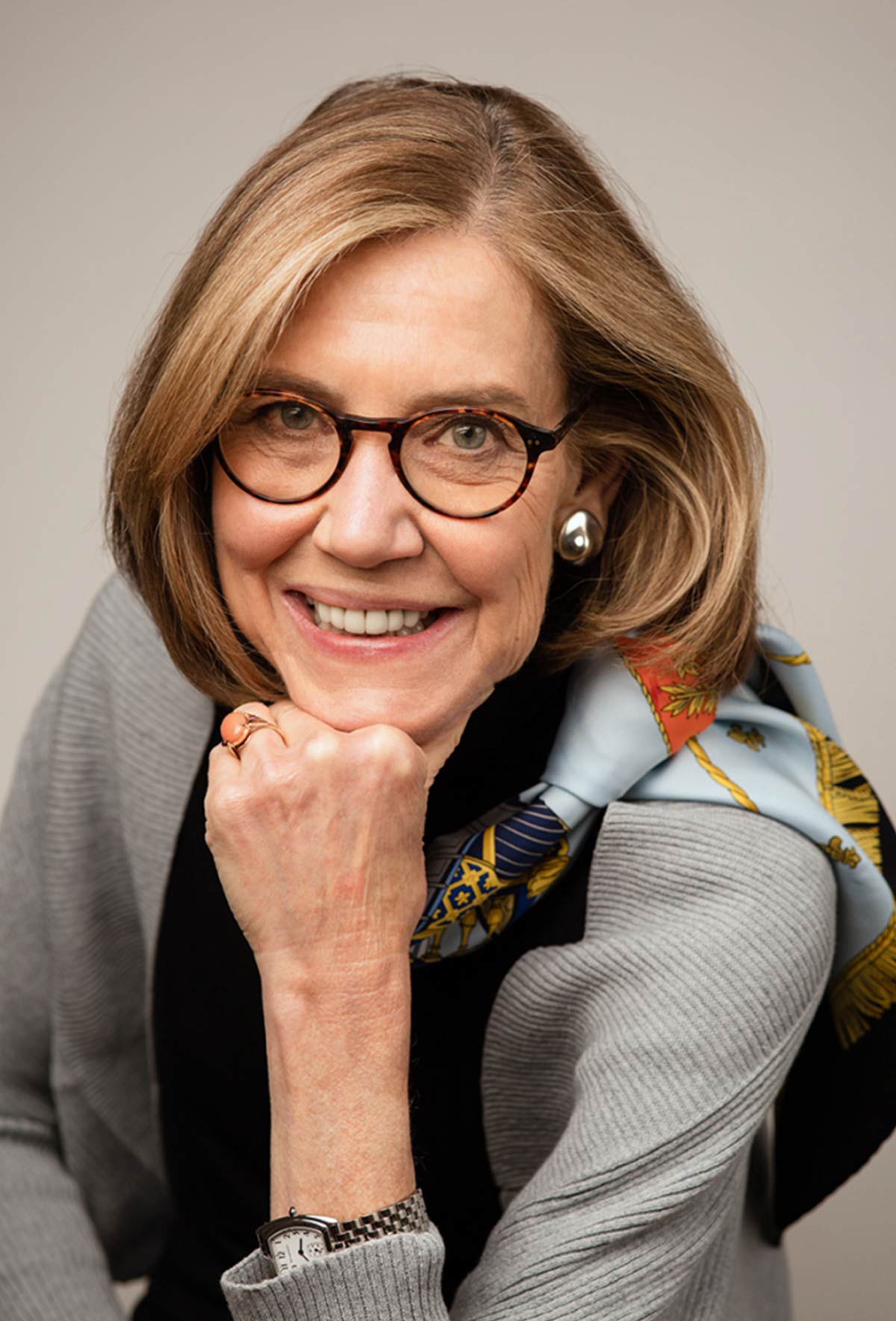
Howard ’72
Howard’s willingness to take a stand against society’s shortcomings began early on, and as a teenager she journeyed to Louisville, KY, to work on civil rights issues. She recently reconnected with Louisville through a podcast segment in a conversation with the director of Speed Art Museum focused on “Promise Witness Remembrance,” an exhibition dedicated to the life of Breonna Taylor, and the protests and conversation around racism, violence, and policing that ensued following her killing.
As a college student, Howard participated in the inaugural Earth Day in 1970, and notes how the experiences of today’s students mirror her own. “I graduated in 1972 and it’s the same kind of turbulence now that it was when I was at Plymouth,” she says. “We also had political turmoil and war. In some ways, it’s a similar transformative period.”
A Plymouth State bachelor’s degree in English is among the credentials that led to Howard’s success as an author, journalist, creative director, communications consultant, and entrepreneur. She held communications positions for two Fortune 500 corporations and is founder and principal of an international corporate communications and marketing consulting firm. Her articles on topics around communications and marketing have been published in the United States and internationally. She has a “Letter from New York” that is published monthly in Indian Economy and Market.
Throughout her career, Howard encouraged business clients to undertake scenario planning and to look beyond their immediate needs. She urges collaboration, flexibility, spontaneity, responsiveness, and involvement in broader social concerns as a way to earn greater public trust and acceptance.
Howard’s professional achievements have been paralleled by her significant accomplishments in advancing the public good, whether as president of a nonprofit settlement house, helping to start an NGO around gun violence and the teaching of conflict resolution, or serving as CEO of the Ovarian Cancer Research Fund. She continues to be involved in social issues related to issues of food and clothing insecurity, systemic racism, voting rights, and the environment, among other topics. In the parlance of today’s PSU, these “wicked problems” are also highly motivating to current college students.
Howard maintains that the best way to prepare students for an uncertain world is “to listen and to encourage,” which she will do along with sharing her expertise later this semester as a guest presenter in a Communication and Media Studies course. She also believes in lifelong learning and holds graduate degrees from the Pratt Institute and George Washington University.
Students will benefit from Howard’s expansive worldview formed by a lifetime of experiences, including academic studies in the UK, on the ground research into Ethiopian food insecurity, and travel to developing countries. She was in Pakistan in the early aughts and had firsthand knowledge of its remote, rural schools. At the time, the US was pouring a great deal of post-9/11 money into educational programs, and Howard realized that, rather than sponsoring exchanges of educators to urban centers, rural Pakistanis could relate better to similar mountainous communities in America. Her insight led to the creation of the Pakistani Educational Leadership Institute (PELI) in 2004, which for many years brought South Asian educators to Plymouth State to learn about best practices in education and exemplary models in professional development and pedagogy.
Howard remains deeply rooted to New Hampshire, which inspired Queen Anne’s Lace and Wild Blackberry Pie, her memoir of growing up in Littleton. Her mother and aunts were Plymouth State alumnae, and her grandfather worked at the Draper & Maynard building, then a leading baseball glove manufacturing facility. Her local connections continue via a regular column in the Laconia Daily Sun, and she proudly maintains ties with her alma mater. She spoke about the University’s importance during a recent return to campus, during which she donated detailed portfolios from her corporate communications career to the Lamson Library archives.
After having lived and worked in urban settings for so many years, the North Country native appreciates Plymouth State’s ability to bridge the gap between rural and urban. “Americans are parochial and it’s important that students have the opportunity to experience another culture,” says Howard. “This doesn’t necessarily mean traveling to another country. For New Hampshirites, it might just be spending time in the Deep South or on the West Coast, while urban dwellers can benefit from the lakes and mountains that form the PSU perspective.”